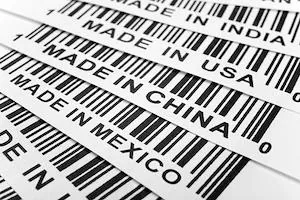Shareholder May Claim Damages Caused to Company that Uses a Trademark
Division 1 of the Court of Appeals in Civil and Commercial Matters found that the managing partner of a company was entitled to file for damages –despite not being the party immediately affected- as his interests coincided fully with the interests of the company.

Division 1 of the Court of Appeals in Civil and Commercial Matters held that the plaintiff could sue based on his close links to the affected company ( “Mastrantonio, Diego Julián v. Maslub, José Ernesto”, Case No. 6020/13, August 9, 2016).
The facts of the case were as follows: Mr. Mastrantonio filed a claim against Mr. Maslub for damages caused to Importadora de Buenos Aires S.R.L. as a result of the use of the trademark “HAWAIIAN BEACH”. The defendant moved for dismissal of the suit, arguing that since the trademark in question was commercially exploited by the company, Mr. Mastrantonio was claiming damages suffered by a third party as if they were his own. The court of first instance ruled in favor of the defendant.
The plaintiff appealed this decision. He stated that there was a strong fnancial link between himself and Importadora de Buenos Aires S.R.L., since (a) he owned the trademark which the company exploited commercially, (b) he owned 95% of the company shares, and (c) he was the company’s managing partner. Mr. Mastrantonio held that as a consequence of these circumstances, his personal profits were tied to the company’s profits.
The Court of Appeals overturned the decision of the court of first instance. It found that the plaintiff was entitled to claim damages, despite not being the party immediately affected by the defendant’s actions.
Furthermore, it held that it is fair to acknowledge the right of shareholders to sue when they are the owners of most of the shares and their interests cannot be separated from the interests of the company which they control, so that the controlling shareholder is almost the immediate owner of the business’ assets.
This decision is interesting because it provides guidelines as to the circumstances under which the courts may hold that a shareholder is entitled to file a suit for damages suffered by a company in the context of a trademark claim.
This insight is a brief comment on legal news in Argentina; it does not purport to be an exhaustive analysis or to provide legal advice.